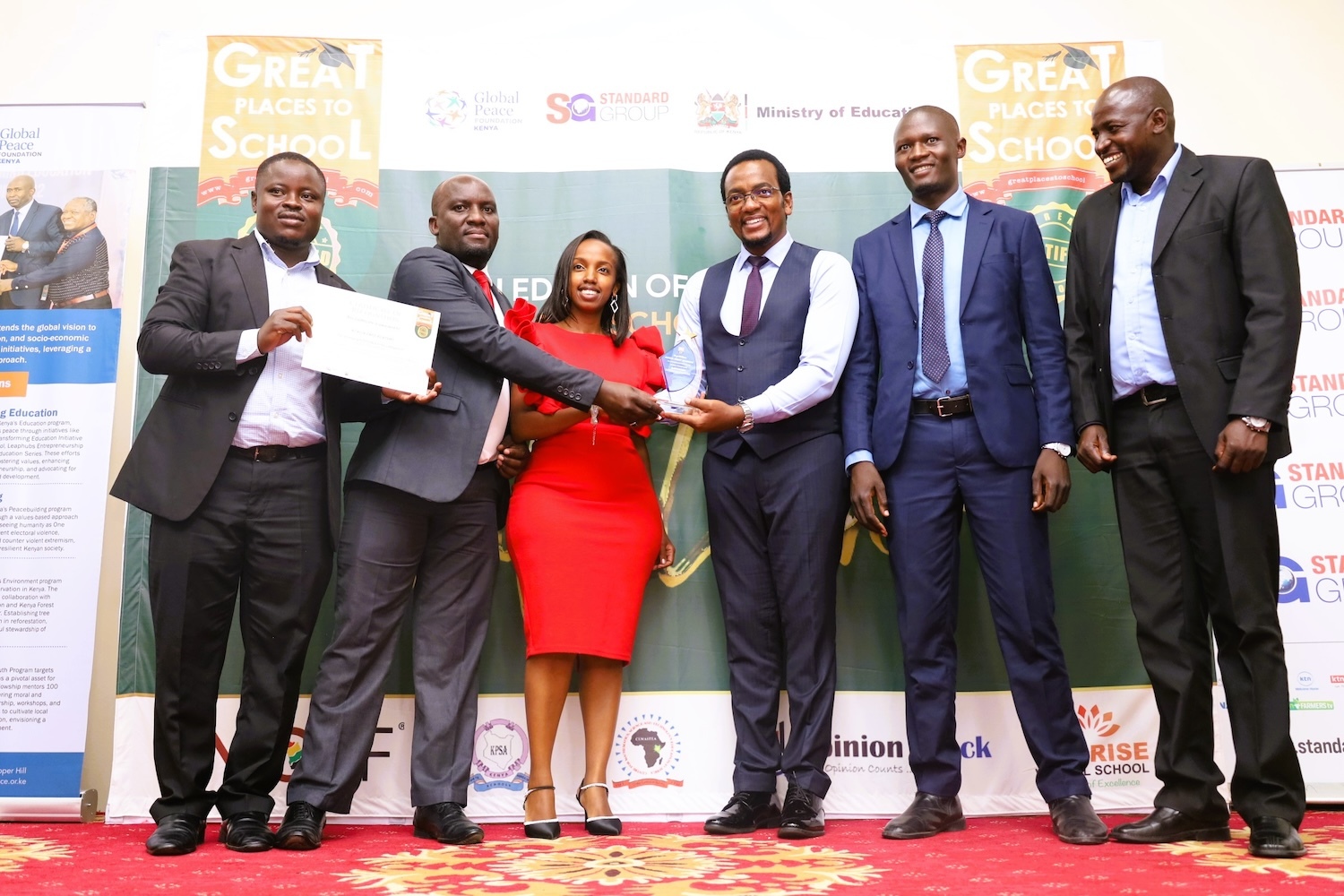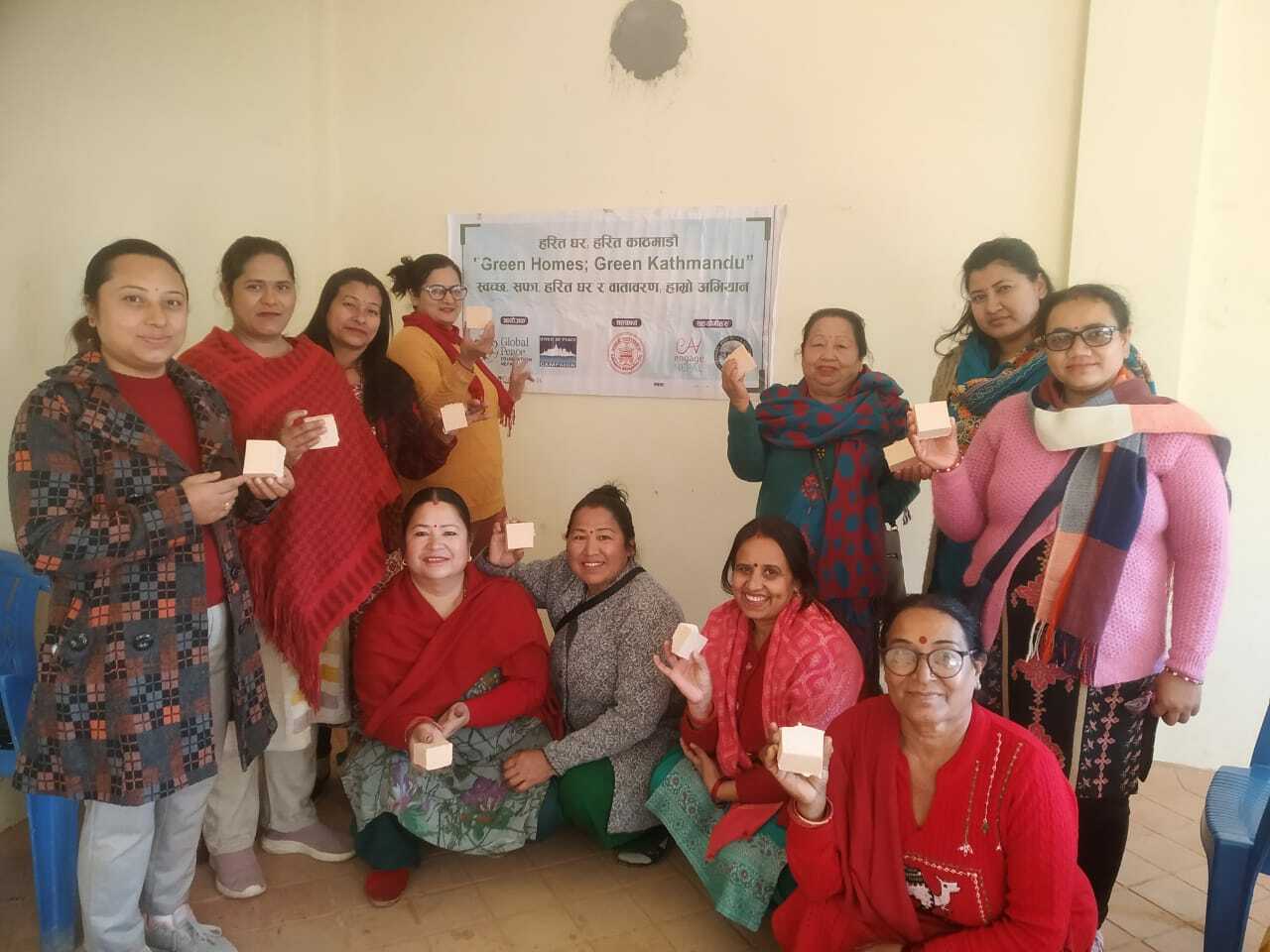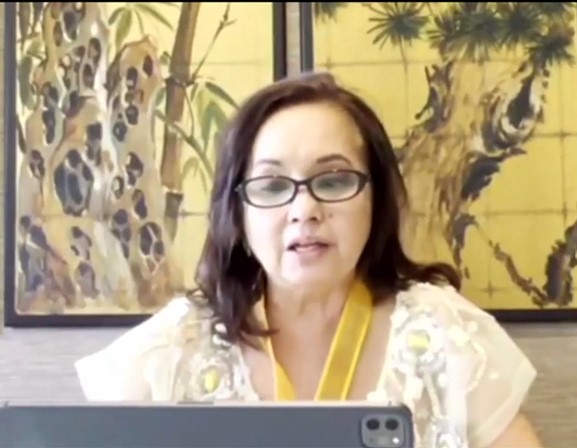
Former Philippine President Gloria Ayorro
Former Philippine President Gloria Ayorro told an international conference of educators and peace advocates that the pandemic of 2020, continuing tensions on the Korean peninsula, the outbreak of conflict in Ukraine, and divisions over the Taiwan Straits once again threaten the international order and require innovative and comprehensive solutions.
Addressing the plenary session of the 2022 Global Peace Leadership Conference, “One Family Under God: A Vision for a World of Freedom and Peace,” in Pampanga, Philippines on December 2, 2022, the former president said, “the world is looking for global leadership that will show the way to a world of freedom and peace.”
She warmly thanked the Global Peace Foundation, the conference organizer, “for its efforts to build a worldwide network of committed and innovative peace builders.” She specifically noted GPF domestic programs in the Philippines since 2009 to promote safe schools and communities, as well as AllLights Villages, which provide solar lighting, clean water, education, income generation as part of a comprehensive program of community development in rural regions.
Global Peace Leadership Conferences are strategic, multi-sector convenings of the Global Peace Foundation and partners that address pressing regional challenges and work toward collaborative solutions within a framework of shared values and moral and innovative leadership.
In a message to the conference, Philippines Vice President Sara Z. Duerte said, “I unite with the Global Peace Foundation’s vision to promote a shared responsibility for the peace and prosperity of our country as we face an increasingly volatile global environment. encouraging people of all faiths to pursue a shared vision of a peaceful society working toward sustainable development. By strengthening peace leadership and gathering leaders you influence better economic outcomes, inclusiveness, and better environmental action.
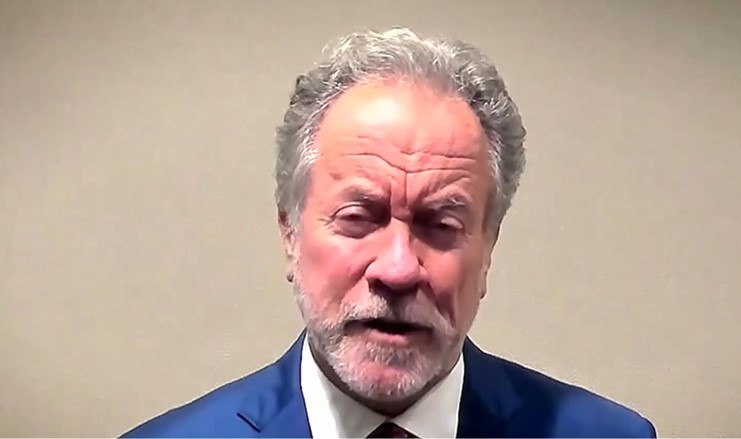
David Beasley, executive director of World Food Program
David Beasley, executive director of World Food Program, the world’s largest humanitarian organization and winner of the 2020 Nobel Peace Prize, described the astonishing progress made over the last 200 years to eliminate extreme poverty, from more than 95 percent of the population to today less than 10 percent. “We have built systems and institutions to share more wealth, food and security than in any time in history,” he said. “But, we are now going backwards.
Conflict, climate shock, meant that food insecurity went from 80 million to 135 million just before Covid came on the scene, he said. With the challenges rising from Covid, some 276 million, and then the outbreak of war in Ukraine, the “breadbasket of Europe,”, some 349 million are now marching toward starvation.
Noting a combined global wealth of $430 trillion, he said a person is nevertheless dying of starvation every 4-5 seconds. “Shame on us. But peace is the key. I’m counting on you to not just be in the discussion but be in the community. All of the darkness in the world cannot put out the light on one little match.”
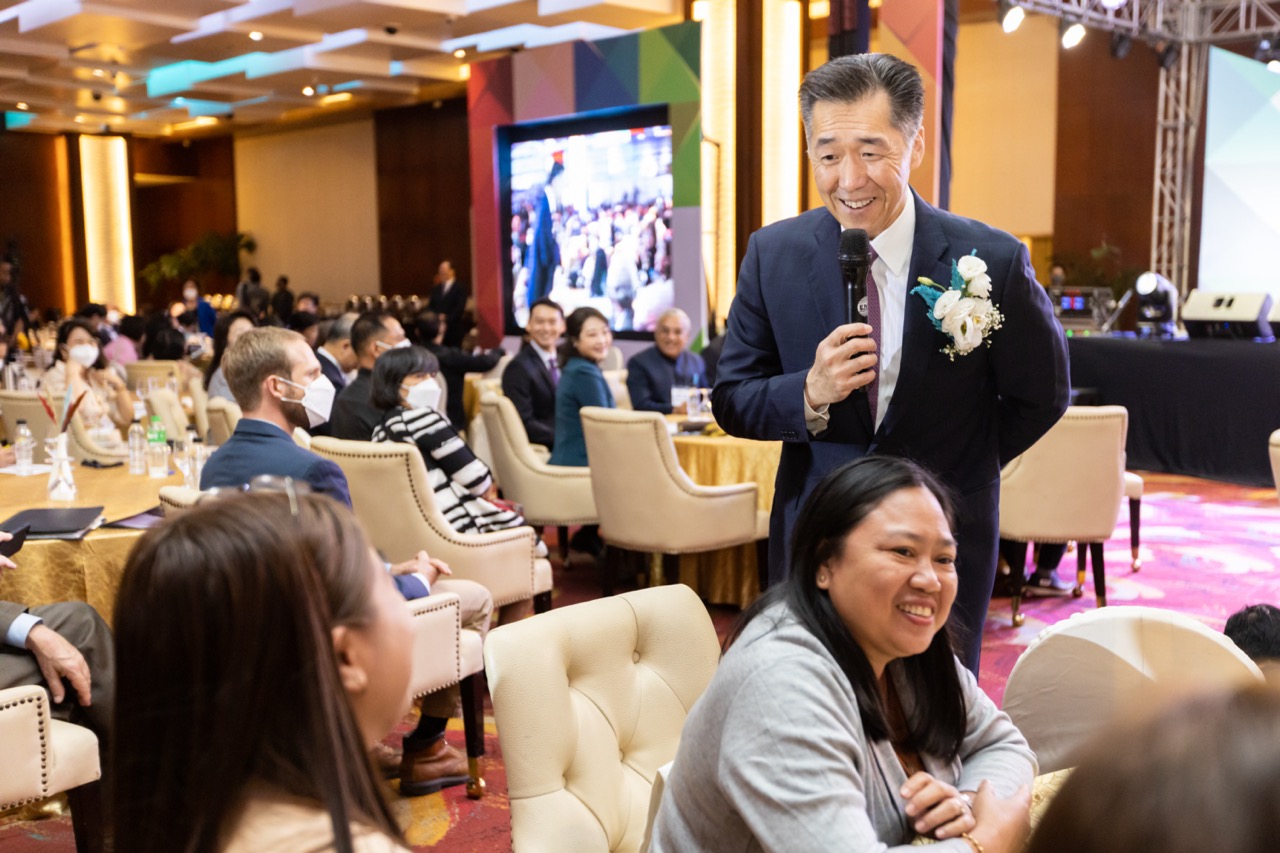
Global Peace Foundation Chairman Dr. Hyun Jin P. Moon
Global Peace Foundation Chairman Dr. Hyun Jin P. Moon addressed the plenary informally, mingling among the audience, while speaking passionately about the promise of youth, the essential role of educators, who played a major role in the convening, and the ideals of freedom, human rights, and peace.
The GPF chairman said “youth” had nothing to do with age and everything to do with the ability to dream and to own the dream through action. “I came to share a dream with you,” he said, “the greatest dream of all. To build One Family under God.”
Dr. Moon said that today in twenty-first century “we know what freedom and human rights look like.” The concept of freedom and human rights is a modern phenomenon, he added, citing most notably the U.S. Declaration of Independence, which for the first time affirmed that freedom and human rights were not granted by governments but endowed by the Creator, with the function of government to uphold and guarantee those rights.
He urged those present to embrace the cause of freedom and human rights, notably bringing attention to the Korean peninsula, where freedom and human rights are denied in the North and which remains divided among all nations from the twentieth century.
Without peace it is not possible to realize the full potential of the individual, the nation or world.
Hon. IL-Yoon Kim, President of the Parliament’s Society of the Republic of Korea, said that the Philippines was among the leading nations in the region in adapting to information technology and could play a key role to spread awareness and build support for Korean reunification. Dr. K.H. Masudi Syuhud, Vice General Chairman of the Indonesian Ulema Council, expressed thanks to participate in the assembly to promote respect and human rights for all people. He expressed his deep sorrow at the loss of life and suffering cause by the war in Ukraine. He drew from Islamic teachings to affirm to common bonds of all humanity and that religion “must be the problem-solver” in the current crisis.
Ambassador Ashok Sajjanhar, former Indian ambassador to Sweden, aid peace is the most coveted commodity today, Without peace it is not possible to realize the full potential of the individual, the nation or world. He said this point was captured when Indian Prime Minister Narendra Modi told Russian President Vladimir Putin,, “Mr. President, this is not an era of war,” that all disputes need to be resolved through democracy, dialogue and diplomacy.

From left: Dr. K.H. Masudi Syuhud, Vice General Chairman of the Indonesian Ulema Council; Hon. Il-Yoon Kim, President of the Parliament’s Society of the Republic of Korea; and Ambassador Ashok Sajjanhar, former Indian Ambassador to Sweden
Other distinguished speakers who presented welcoming remarks included Atty. Agnes VST Devanadera, President of Clark Development Corporation; Dr. Nona S. Ricafort, Co-Chair Global Peace Festival 2022; and James Flynn, International President of Global Peace Foundation.
The 2022 Global Peace Leadership Conference included dedicated sessions on Transforming Education, Women’s Empowerment, Corporate Social Responsibility, Peace and Security, and the Role of the Media in Peacebuilding, Conflict Management, and Prevention.
Global Peace Leadership Conferences have been convened in Malaysia, Philippines, Nepal, Indonesia, India, South Korea, Nigeria, Mongolia, Tanzania, Uganda, Northern Ireland, Brazil, and the United States.

